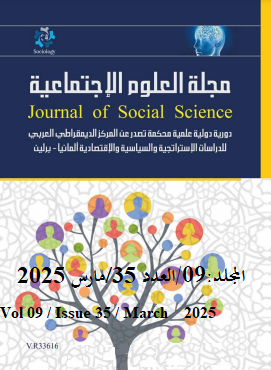The Administrative Decision on Travel Ban
Keywords:
almaneu, alsafara, altaeawunuAbstract
the right to freedom of movement and travel from one place to another is an inherent human right, essential to human life given the psychological and physical nature of individuals. This right serves as a foundational pillar of human rights and freedoms in general. It is a relative, not absolute, right, subject to regulations and limitations that govern its exercise. Constitutions and legislations oversee the regulation of the right to movement and travel. This research addresses the concept of the administrative decision to impose a travel ban, which constitutes a restriction on an individual's freedom of movement, an essential right that cannot be waived. It examines the conditions and legal nature of such decisions, differentiates between judicial action and administrative decisions, and identifies the authorities responsible for issuing and contesting travel bans. The research is divided into two main sections: the first explores the nature and legal characteristics of the administrative decision imposing a travel ban, while the second outlines the authorities empowered to issue and contest such decisions. The research, based on a comparative analytical approach, concludes with a set of findings and recommendations. A key finding is that a travel ban is a temporary precautionary measure aimed at preventing individuals from leaving the country, issued by a competent judicial authority when sufficient evidence exists to justify it. In Palestinian legislation, the nature of a travel ban is an ongoing administrative decision, whereas in Kuwaiti law, its nature varies according to the matter at hand. In criminal and civil matters, the travel ban serves as a precautionary measure pending trial, while in bankruptcy cases, it is not considered punitive unless bankruptcy is formally declared
Downloads
Published
Issue
Section
License
Copyright (c) 2025 Journal of Social Sciences

This work is licensed under a Creative Commons Attribution-NonCommercial 4.0 International License.
This work is licensed under CC BY-NC 4.0






